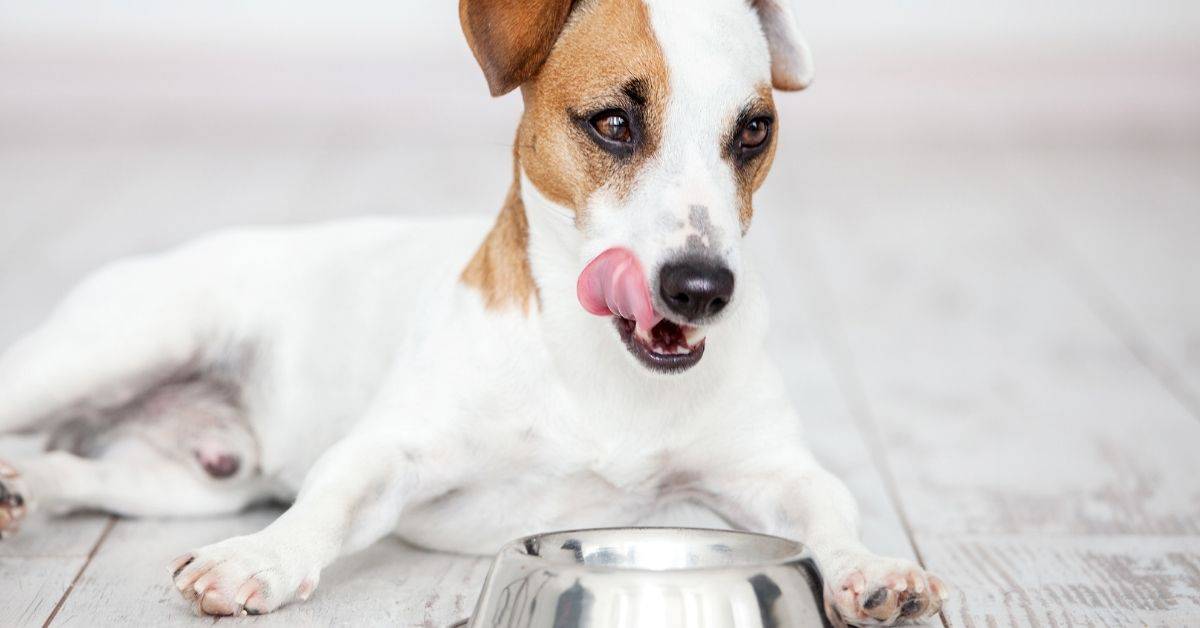Most dog owners don’t give much thought to their digestive systems, much less the basics of a dog’s digestive system.
But we deal with the canine digestive system when we feed our dogs and take them outside to relieve themselves.
What happens to kibble or canned food entering a dog’s gaping mouth and exiting the other end?
How long does it take a dog to digest food?
Size, age, activity level, and type of food all affect how long it takes to digest meals; the digestive process in dogs might take 4 to 12 hours.
Food travels to the stomach through the esophagus after entering the mouth; after that, it follows the small and large intestines before leaving the body.
That is too easy if it seems that way.
A mind-boggling array of organs, fluids, and enzymes work together in the dog’s digestive system to turn food into sound energy.
The feces left over are ejected through the anus as surplus to requirements.
How Do Dogs Digest Food?
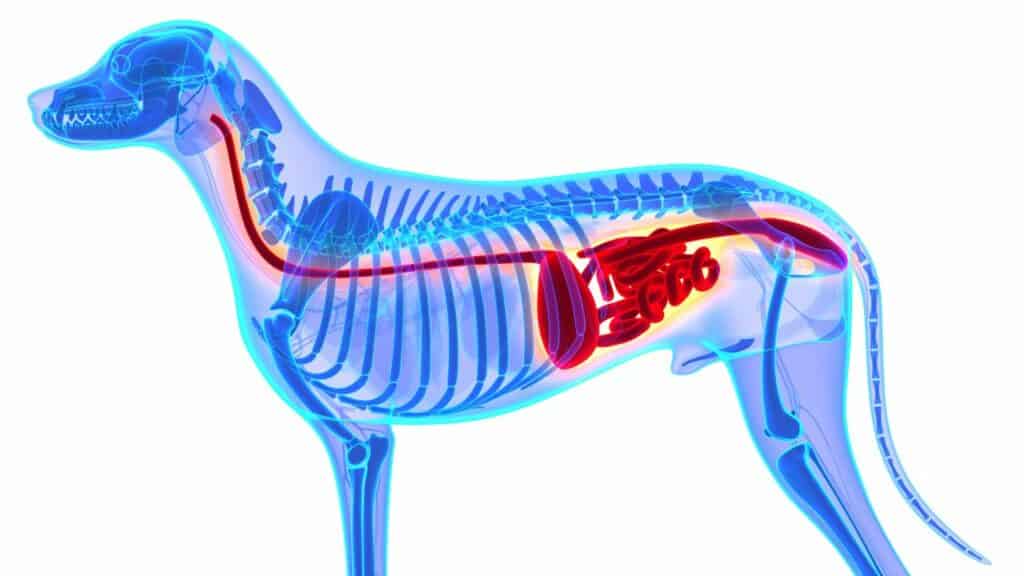
A lot can happen between when your dog finishes eating from his dish and when you take him outside to go potty.
To ensure the dog receives all the nutrients from the food he eats, it is essential for all the systems in the digestive tract to function correctly.
Step 1: From Mouth to Stomach
The digestive process begins as soon as your dog starts eating its meal.
The teeth shatter the food into tiny bits before it travels down the esophagus and into the stomach.
Your pet’s gallbladder creates bile and adds it to the chewed food mix to balance the acidity of any remaining stomach acid.
The work of naturally occurring enzymes allows the body to absorb nutrients from food more efficiently.
Step 2: Right Through The Small Intestine
The intestinal system is responsible for absorbing nutrients and water from food; food passes through its walls and into the bloodstream after digestion in the stomach is complete.
More enzymes from organs like the liver and pancreas support this digesting process.
Step 3: The Waste Removal
After absorbing nutrients, the large intestine processes any undigested food (partially digested) or waste into feces.
Factors Affecting How Long It Takes A Dog To Digest Food

Dogs have a unique personality and set of characteristics, and each dog breed has various features that influence how their digestive systems function.
A dog’s digestive system typically needs 8 to 10 hours to digest a meal. However, depending on the breed and kind of food, this time might range from 4 to 12 hours.
The digestion process can vary greatly depending on the dog’s size and breed, health conditions, stress, type of food, and other factors.
Size, Age, And Species Of Dog
It is commonly accepted that smaller dogs and puppies require less food and digest it faster than adult dogs.
For tiny breeds and puppies, the digestion process typically lasts four hours, but it takes an average of eight hours for larger dogs.
One study indicated that larger breeds digested more slowly; however, a French study discovered that while breed size was not a significant determinant, puppies’ GI emptying periods were lower.
That is similar in humans.
As any parent knows, newborns and young children eat more regularly and poop more often than full-grown adults.
Diseases And Health Conditions
The condition of a dog’s gastrointestinal tract profoundly affects the general health of the pet and the dog’s immune system.
Lack of or excess dog body fat and specific diseases and disorders can adversely affect your dog’s ability to digest food and absorb essential nutrients.
If your dog lacks body fat, it’s crucial to fatten up your dog.
If your dog has too much body fat, it is essential to lose this fat.
Intestinal obstruction, cancer, ulcers, parvovirus, gastritis, and colitis are among the conditions that can influence digestion.
Activity Level
Dogs have the genetic capacity to endure a diet high in raw meat.
Large amounts of food can be kept in their stomachs for extended periods, and the food can be slowly digested to provide energy as needed.
That implies that a dog’s physiology will rapidly break down the food stored in its stomach the more energy it expends.
The food will travel into the intestines if he needs a quick energy boost for physical activities to acquire calories and nutrients that can be absorbed.
Hydration
The duration of your dog’s diet digestion is affected by how much water he drinks.
Food is aided in digestion by the presence of digestive enzymes and acids, secreted in response to the presence of water, making the food easier to chew.
Furthermore, water aids in the softening of feces, making bathroom trips more comfortable.
Provide enough fresh, filtered, or spring water for your dog.
For more information about hydration, you can learn more in our article on how long a dog can go without water.
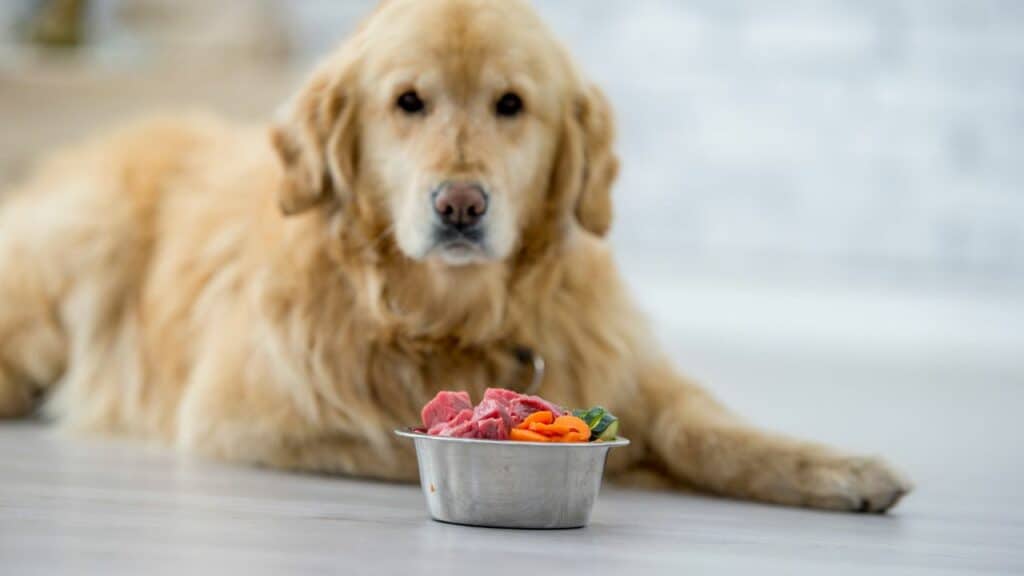
The Type Of Food Your Dog Eats
Of course, the type and amount of food consumed impact how well your dog digests.
The amount of protein in a portion of food significantly affects how long it takes to digest.
It matters how the food is processed as well.
Your dog may digest wet food more efficiently than dry food since water makes it pass through the intestinal tract more quickly.
Dry dog food takes eight to ten hours to digest, while wet food can be broken down in four to six hours.
Symptoms of Digestive Problems in Dogs
There are a few symptoms to watch out for that could indicate your dog has a digestive issue.
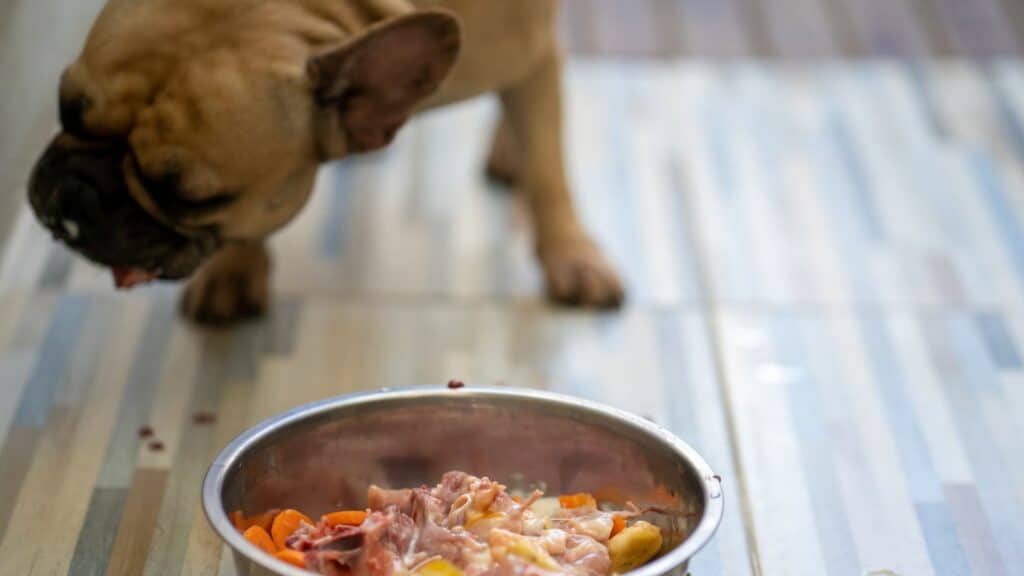
Those symptoms are:
Abdominal discomfort
Loss of weight and weight gain
fewer appetites
Vomiting
Diarrhea
Constipation
Gas and bloating
Dehydration
These symptoms may indicate that your dog needs additional assistance because his digestion isn’t functioning as it should.
If the issues continue, you might wish to speak with your veterinarian.
What Happens To Food That Can’t Be Digested?
The body cannot absorb all the food your dog consumes; the nutrients your dog requires are absorbed via the intestines during meal digestion, leaving fiber, some water, bacteria, and inorganic waste behind.
If you feed your dog raw foods such as veggies, you’ll probably notice traces of those foods in your dog’s feces.
That doesn’t imply that your dog didn’t get anything from consuming these vegetables.
It indicates that the non-digestible fiber has left the body, and the useable nutrients have been absorbed into the digestive system.
As fiber helps control the water content of stools, it is crucial for maintaining a healthy dog digestive system.
The digestive process, often known as how long it takes a dog to digest food and pass it out, is influenced by several variables.
How To Promote Your Dog’s Digestion
Although our adult dogs would like to believe they can eat anything, they actually cannot.
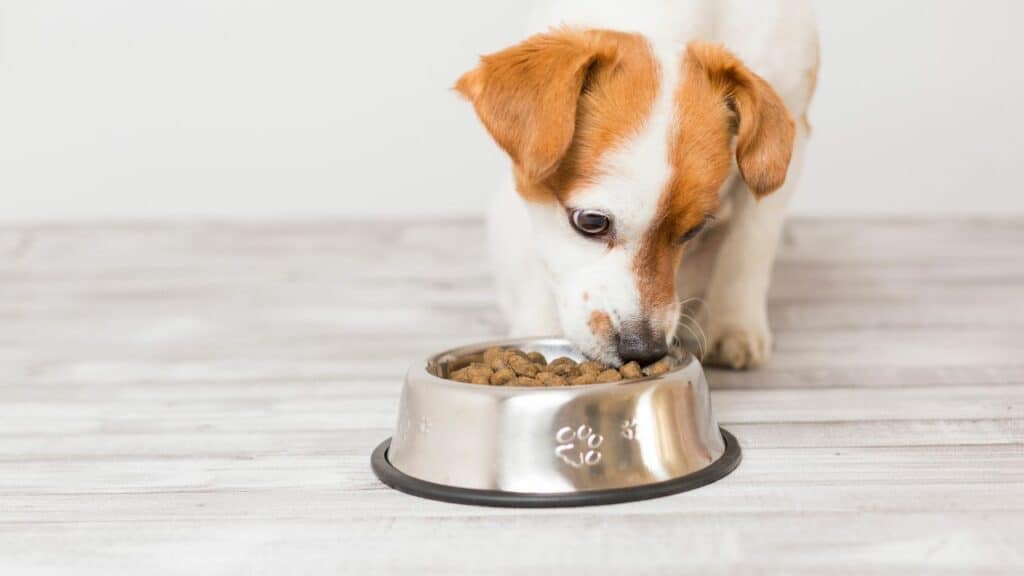
There are many foods your dog should never consume, but many things can be done to support your dog’s digestive process.
When you support a dog’s digestive system, you support their overall wellbeing, as you’ll see once we break down the many elements of dog digestion.
That implies awareness of the entire digestive cycle and the components that affect your dog’s digestive process.
Dog Vitamins And Supplements To Support Digestive Health
Vitamins and supplements are one of the best ways to encourage a healthy digestive cycle in your dog.
Your dog’s digestive system needs vitamins and supplements.
A digestive aid can relieve your dog’s indigestion, make it easier for him to digest food, and maintain his intestinal tract.
While some manufacturers of vitamins and supplements would have you think that overdosing on supplements won’t give your dog the vitamins and nutrients they require,
Instead, it will overload their systems with leftovers that won’t be absorbed.

When Should You Consult Your Vet?
Consult your veterinarian first before giving your dog any supplements or vitamins.
Your veterinarian will confirm your dog’s breed and suitability for the supplement.
Based on your dog’s unique problems, they might even be able to suggest better alternatives.
Make sure to contact your veterinarian immediately if you discover that your dog’s digestive health has changed significantly over a short period.
Observing your dog’s feces will help you identify problems with the dog’s digestive tract.
Your dog must visit the vet if it is excessively runny or has an odd color.
Conversely, a lack of stools indicates that your dog is also having a problem.
Call your veterinarian immediately if your dog is having issues going to the bathroom or not going.
Before You Go…
Now you know the answer to the question, “How long does it take a dog to digest food?”
If you want to learn more, read the following articles too!

